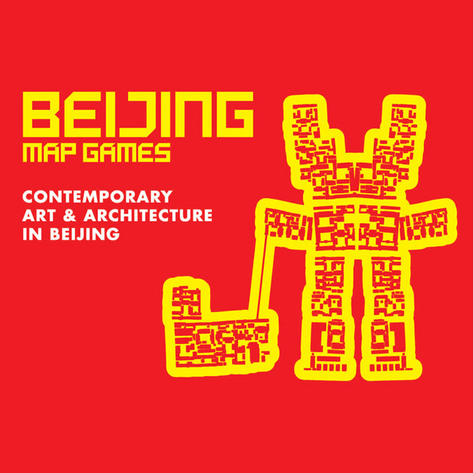MapGames: Dynamics of Change (Beijing)
Venue: Beijing Today Art MuseumCurators: Feng Boyi, Monica Piccioni (offiCina beijing), Rosario Scarpato (offiCina beijing), Varvara Sharova.
Date: 1st June 2008
Participating Artists
Ai Weiwei, Bai Shuangquan-tozer pak [hk], Sarah Beddington [uk], Anna Boggon [uk], Chen Shaoxiong, David Cotterrell [uk], Andrea Gotti [italy], Guan Shi, Li Juchuan, Lin Yilin, Michael Najjar [germany], Perino & Vele [italy], Varvara Shavrova [russia/ireland], Tang Hui, Hugo Tillman [uk], Wang Jianwei, Wu Wenguang/Wen Hui, Yin Xiuzhen, Yuan Shun, Zhan Wang.
Participating Architects
Marcella Campa + Duliao Studio [Li Wenjun, Stefano Avesani, italy], Ma Qingyun [Mada Spam], Ma Yansong [Mad], Winy Maas [Mvrdv, Netherlands], Wang Hui [Urbanus].
Map Games: Dynamics of Change is a new international visual art and architecture project. Traditionally maps are meant to provide us with reliable information on unfamiliar places. A map is a tool that we most solely rely upon when we arrive at a new destination. Maps give us a level of personal independence and allow us to explore new locations, becoming our essential “lingua franca”. Maps can be records of personal experiences, kinds of diaries documenting personal histories in relation to time and place, and can be seen as universal yet personal records of relationship between the “self”, the inner, and the outer worlds. Apart from providing geographical “portraits” of particular areas and locations, maps have political significance, representing most aspects of our lives, from population distribution and ecological issues, to demarcation of borders and nations.
In Beijing the dynamics of change are so great that the process of creation, adjustment and production of the city map simply cannot keep up with the “butterfly effect” of the city's exploding construction busyness and the consequent rapidly changing dynamics of the city's geography. The daily, if not hourly changes taking place in the city creating the state of continuous flux mean that the map can only exist, like the city itself, in the same state of constant, explosive and sometimes illogical change.
Consciously or subconsciously we therefore engage in the process of mental mapping, or playing a kind of mapping “game”, that becomes an essential part of experiencing the city. Multi-layered “parallel maps” are created through one's experiences of the city and represent personal reflections on the city's dynamics. Mapping of the city becomes an all-sensual, three-dimensional experience, a synergy of elements including history and memory, time and space, language and communication. The process of mapping is layered with important cultural references yet remaining continuously fluid and inviting constant reinterpretation.
Mapping of the city becomes a map game - and a mind game.
The project is originated by visual artist Varvara Shavrova, and is a curatorial and creative collaboration between independent curator Feng Boyi and offiCina art project space co-founders Monica Piccioni, Rosario Scarpato.
Through in-depth research the curatorial committee invited participation from nearly 30 established as well as emerging visual artists and architects representing the diversity and richness of contemporary art in China and Europe.
The artists and architects taking part to the project will create, through a series of projects and artworks produced in different media, a response to different areas and specific contexts of the city. From this concept of a multi-dimensional, multi-layered city space, “map game” will take shape and investigate the features of new urban culture. Yet this is not as simple as reaching every geographic place by “locating it on the map”, but by using the concept of mapping to aim to redraw and redefine the image of the city.
In each individual and original artwork everyone will see each participating artists’ current and future thoughts and imagination. We will not only see continuity and interruption, reflections on culture, history and present life experience, but also get a glimpse of an imaginable future.
The project culminates in a group exhibition at the Today Art Museum in Beijing opening on 18th June 2008, touring to Europe Birmingham Museum and Art Gallery (Oct 2008-Jan 2009) then to Terni International Center for Contemporary Art Ex-Opificio Siri (CAOS) (Italy).
Besides the successful cooperation and support from the three Museums, the project benefits of patronages from six foreign Embassies in China and is also supported by the Italian Embassy Cultural Office in Beijing, Goethe Institut and The Emperor Hotel in Beijing. The first are prestigious cultural institutions, the last is an example itself of Beijing new dynamic architectural outcomes.
Share:
Twitter / Facebook / Pinterest

